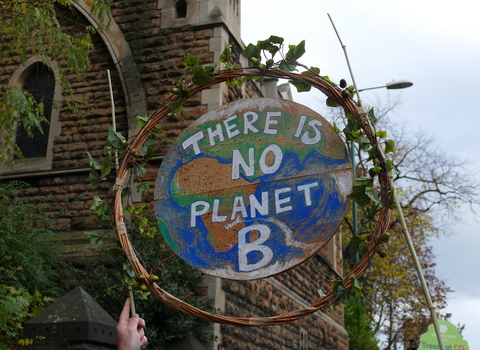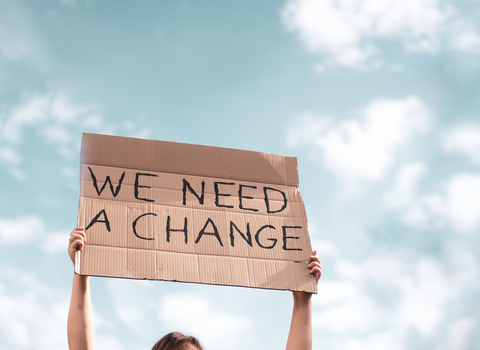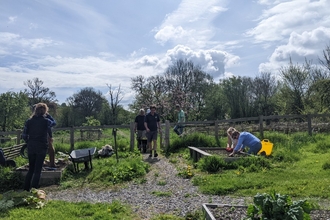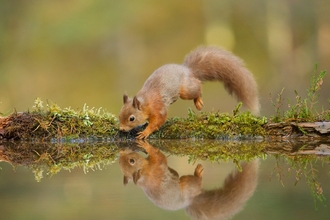Nigel Brooks / Upton Heath fire
Climate emergency
What is the climate emergency?
We are currently experiencing a global climate and nature emergency, and it is no surprise that the two are inextricably linked. Climate change is a significant driving force behind nature's decline, creating a vicious cycle as the loss of wildlife and wild places leaves us ill-equipped to reducing carbon emissions and adapting to climate change. In short you cannot solve one crisis without solving the other.
Healthy and fully functional natural habitats have the ability to reduce the risk of flooding, help prevent coastal erosion, improve people's health and wellbeing, as well as maintain healthy soils, clean water and the pollinators needed for our crops. In order for this to happen, we need ambitious natural climate solutions that capture carbon in our peatlands, meadows and forests.
What is Dorset Wildlife Trust calling for?
Driven by climate change and environmental degradation, nature is declining at an unprecedented rate. We must act now, and accelerate that action, to reverse this decline by making more space for wildlife and habitats to adapt and recover on a grand scale. As a movement, The Wildlife Trusts stand united with all those who share our belief that nature is valuable in its own right as well as being essential to our existence.
We need at least 30% of our land and sea to be connected and protected for nature's recovery by 2030. We want to allow for more space for nature to become abundant once again and give our struggling wildlife the opportunity to recover whilst restoring Dorset's beautiful wild places. Wild places that not only aid our mental health and wellbeing, but also store carbon and help tackle the climate crisis that we face.
We must come together to restore our habitats on a landscape scale, and bring our seas back to life if wildlife is to thrive again. The damage must stop and the tables must be turned. (*You can read about how we and The Wildlife Trusts plan to do this by creating Nature Recovery Networks here.)
What are we doing to tackle this climate emergency?
Across the UK, wildlife trusts are working to protect and restore habitats. We tackle this climate and ecological emergency every day and lead work on solutions wherever we can, but we all need to work together for a healthy natural world.
In Dorset, we are working to help reduce emissions, capture carbon, protect wildlife and wild places from the effects of climate change.
- We are demonstrating nature-based solutions to climate change on our nature reserves, Dorset's rivers and wetlands and with beavers.
- We are working with landowners and communities to protect and manage vital nature havens and natural carbon stores and standing up for nature and climate on land and at sea.
- At Wild Woodbury, we will be showing how soil carbon changes as natural regeneration and wetland restoration proceed.
- Dorset Wildlife Trust hosts the Dorset Peat Partnership which is working to restore Dorset's mires to their full potential to hold carbon.
- We have set an ambitious strategy for a net zero carbon footprint by 2030.
What can I do to help?
- Take action yourself to reduce your own carbon footprint. If you have a garden, make it a wildlife-friendly one. And go peat-free. There are some more ideas for reducing your footprint here.
- Join our #DefendNature campaign - You can join the campaign here and make your voice heard.
- Donate to help Kingcombe National Nature Reserve and surrounding areas more nature-rich and climate change resilient here.
- Join one of our volunteer groups and help conservation work in your area of Dorset - check out the events page here.
- Become a member of Dorset Wildlife Trust and help us, help wildlife and wild places in Dorset. Find out more here.
- Sign up to our newsletters and stay up to date with conservation, events and wildlife news in Dorset.




